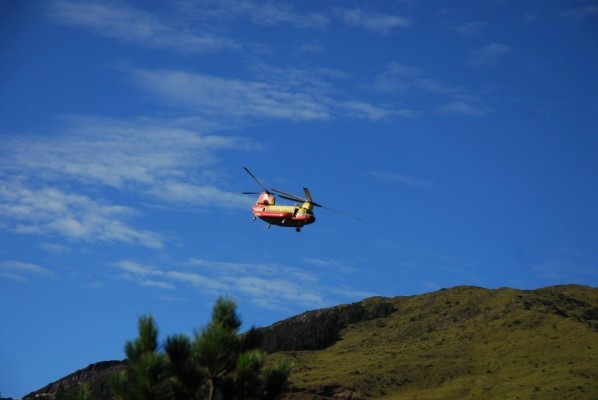Only by acknowledging and understanding the importance of safety can you enjoy climbing and coming back down the mountain without harm. Shei-pa National Park Headquarters asks those who go mountain climbing to plan properly and make a risk assessment before setting off. If you have any kind of unexpected reaction to the high mountain environment, please use the Management Office’s methods to deal with altitude sickness

Shei-Pa National Park mountain huts have continued to provide the Portable Altitude Chamber (PAC) sponsoring by Taiwan Wilderness Medical Association for use.
This Portable Altitude Chamber is mainly used in serious cases of altitude sickness to alleviate the symptoms, for the correct method you must immediately descend the mountain to a lower altitude after its use and must not continue ascending the mountain. According to the working records of Shei-Pa’s conservation volunteers, it is dangerous and incorrect to continue climbing to the top after suffering from altitude sickness and using PAC to alleviate the symptoms. In addition, there have been many mountain climbers who change their route from the planned route at the time of their entry permit application; this violates the National Part Act, Article 13.1, Clause 8 which rules that when entering an ecological conservation area it is forbidden to deviate from the permitted route or itinerary. If someone changes their route, it is harder to contact the relevant unit to request a helicopter lift down the mountain in the event of altitude sickness.
The headquarters recommends that those wishing to go mountain climbing properly plan their route and slowly ascend the mountain, as letting the body adapt to the change in altitude is the most important rule to prevent altitude sickness. Additionally, avoid strenuous activities, stay hydrated, keep warm, do not drink alcohol, and avoid using sleeping pills and narcotic pain medications etc., as these are all ways to reduce the dangers of altitude sickness. If you climb a mountain over 3,000 meters tall, the headquarters recommend that you spend one night at around 2,500 metres to adapt to the altitude first. If you want to use medicines to prevent or treat altitude sickness, they must be prescribed by a doctor, and taken according to the doctor’s instructions.
The headquarters reminds the public once more, in the event of altitude sickness, take a responsible attitude to deal with the sickness and do not neglect any adverse reaction to the altitude. If you cannot reach the top this time then please come back another time, the mountain and scenery will always be here.